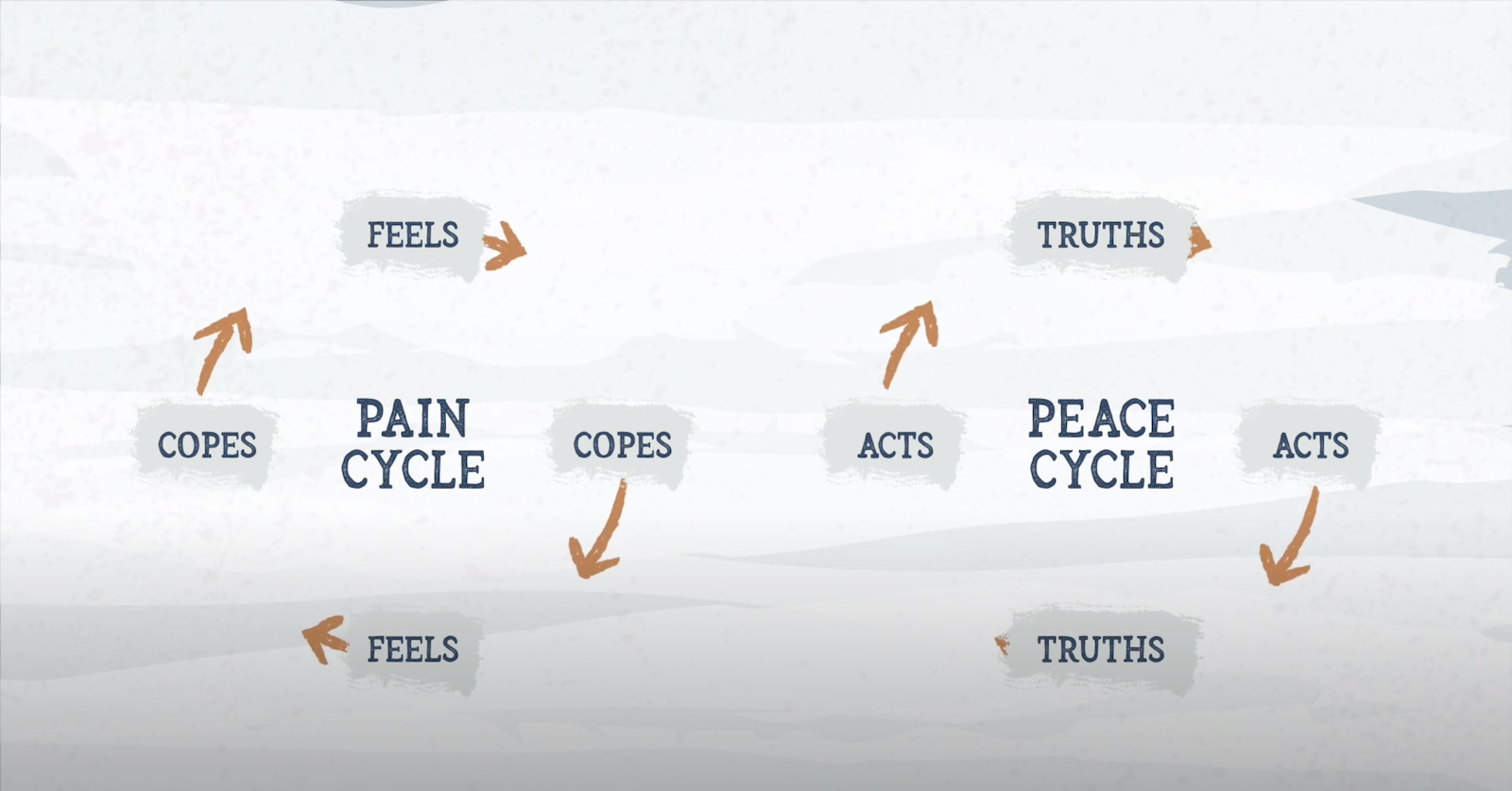How to Help Your Children Believe What is True

The Pain Cycle is what Dr. Terry Hargrave, in Restoration Therapy, has named the pattern that can occur when we face stressors and disappointments in life. Too often when these events happen, especially if we've had difficult childhoods, we can have feelings that aren't really true. We believe lies like "I'm abandoned and alone" or "I'm a failure and will never be good enough." Then, even without realizing it, we begin to engage in unhealthy coping such as withdrawal or becoming demanding.
What are Pain & the Peace Cycles? Learn more here.
It is important to note, first and foremost, that parents create a healthy environment for their children when they themselves are centered, not reactive. So, learning to live individually and as a couple in the peace cycle is one of the greatest gifts you can give your children. This creates an environment that allows children to feel safe, regulated, and able to thrive.
But our children also have their own pain and peace cycles! Most teens can understand these concepts. You can directly explain the model to them and then help them learn to "catch themselves" when they are having thoughts and feelings that are lies. When you notice your teen start to withdraw from friends after a break-up, invite the conversation. At first, you might have to get the conversation going. "I notice you're staying in your room a lot, not going out with your friends. This seemed to have been a change since the break-up. What's going on in your head and heart?" (We would suggest only one of these openers and then wait quietly while they respond!)
Some might need specific prompts, "Are you feeling alone? Not good enough?" Asking these types of questions can open the opportunity for you to empathize and gently challenge. It might be even more powerful to share with them a story about something going on in your life presently that is causing you to want to withdraw to help them understand this happens to all of us. When we believe such lies, we are tempted to cope in order to protect ourselves. In reality, we often cope by doing things that don't help--like shutting ourselves off. To encourage your kids in those moments you might say, "If you remember you are OK, you are good enough, you are loved, you might get back out and start enjoying friends again." Again, let them know this is not always as easy as it sounds.
Junk Thoughts
The concept of "junk thoughts" has been used with younger children. When you suspect your child is having irrational, unfounded thinking, you can explain this idea. "You know how if we eat too much junk food, we don't feel very well? It's the same with junk thoughts. If we think junk--stuff that isn't true we don't feel good. So, I understand that you're disappointed about not getting invited to that birthday party, but I think maybe the reason you are staying so upset for so long is that you are believing junk thoughts. Are you feeling like no one loves you? Is that thought true or is it junk? What is true?" If your child responds well to spiritual encouragement, it might be the time to remind them that they are truly loved by God. It opens the door to talk about how scripture teaches us to think about positive things as in the following verse.
"Finally, brothers and sisters, whatever is true, whatever is noble, whatever is right, whatever is pure, whatever is lovely, whatever is admirable--if anything is excellent or praiseworthy--think about such things." - Philippians 4:8 (NIV)
Parents and children alike, all need to remember what is true. In scripture, Satan is referred to as "the accuser" (Rev 12) and a liar (John 8). Rather than believe the lies, we can be changed "by the renewing of our minds." (Romans 12). A critical role of parenting is to model your own thinking to help children and teens learn to believe what is true and to learn how to "catch themselves" when they begin to be deceived.
For more stories, methods, and research about parenting, download our free RelateStrong | Leadership Series eBook.
